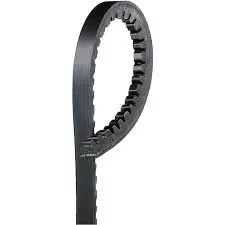- Arabic
- French
- Russian
- Spanish
- Portuguese
- Turkish
- Armenian
- English
- Albanian
- Amharic
- Azerbaijani
- Basque
- Belarusian
- Bengali
- Bosnian
- Bulgarian
- Catalan
- Cebuano
- Corsican
- Croatian
- Czech
- Danish
- Dutch
- Afrikaans
- Esperanto
- Estonian
- Finnish
- Frisian
- Galician
- Georgian
- German
- Greek
- Gujarati
- Haitian Creole
- hausa
- hawaiian
- Hebrew
- Hindi
- Miao
- Hungarian
- Icelandic
- igbo
- Indonesian
- irish
- Italian
- Japanese
- Javanese
- Kannada
- kazakh
- Khmer
- Rwandese
- Korean
- Kurdish
- Kyrgyz
- Lao
- Latin
- Latvian
- Lithuanian
- Luxembourgish
- Macedonian
- Malgashi
- Malay
- Malayalam
- Maltese
- Maori
- Marathi
- Mongolian
- Myanmar
- Nepali
- Norwegian
- Norwegian
- Occitan
- Pashto
- Persian
- Polish
- Punjabi
- Romanian
- Samoan
- Scottish Gaelic
- Serbian
- Sesotho
- Shona
- Sindhi
- Sinhala
- Slovak
- Slovenian
- Somali
- Sundanese
- Swahili
- Swedish
- Tagalog
- Tajik
- Tamil
- Tatar
- Telugu
- Thai
- Turkmen
- Ukrainian
- Urdu
- Uighur
- Uzbek
- Vietnamese
- Welsh
- Bantu
- Yiddish
- Yoruba
- Zulu
Aug . 13, 2024 10:18 Back to list
Understanding the Importance of Nissan Timing Belt Replacement for Optimal Engine Performance and Longevity
Understanding the Importance of Timing Belts for Nissan Vehicles
When it comes to vehicle maintenance, one of the most critical components that often goes unnoticed is the timing belt. For Nissan owners and enthusiasts, understanding the function, importance, and maintenance of the timing belt can save you from expensive repairs and ensure your vehicle runs smoothly.
What is a Timing Belt?
The timing belt is a crucial part of your engine's internal workings. It is responsible for synchronizing the rotation of the crankshaft and the camshaft, which is essential for the proper timing of the engine's valves. In simpler terms, the timing belt ensures that your engine’s components work in harmony, allowing the engine to function efficiently. Without a properly functioning timing belt, the engine can experience severe damage, leading to costly repairs.
Why is Timing Belt Maintenance Important?
For Nissan vehicles, the timing belt generally needs to be replaced every 60,000 to 100,000 miles. The timing belt is made of rubber and tends to wear out over time. If it breaks, it can cause the engine's pistons to hit the valves, resulting in catastrophic engine failure. Therefore, regular inspection and timely replacement of the timing belt are essential for maintaining the health of your Nissan.
The engine's design plays a significant role in how the timing belt functions. Many Nissan engines are interference engines, meaning that if the timing belt fails, the pistons can collide with the open valves. This collision can lead to bent valves, damaged pistons, and a slew of other costly repairs. It's vital for Nissan owners to adhere to the manufacturer's recommended service intervals for the timing belt replacement.
Signs of a Failing Timing Belt
Being aware of the signs of a failing timing belt can help you catch potential problems before they escalate. Some common symptoms include
1. Unusual Noises A failing timing belt may produce a loud, ticking noise coming from the engine. This noise often indicates that the belt is loose or has worn out. 2. Engine Misfires If your engine is misfiring or running roughly, it may be due to timing issues caused by a worn timing belt.
3. Oil Leaks If you notice oil leaking from the front of your engine, it could be a sign of a failing timing belt seal.
for nissan timing belt

5. Difficulty Starting If your Nissan is struggling to start, it might be due to issues with the timing belt.
How to Care for Your Nissan's Timing Belt
To ensure the longevity and efficiency of your timing belt, consider the following maintenance tips
- Regular Inspections Have your timing belt inspected by a professional mechanic during regular service intervals. This can identify potential issues before they lead to failure.
- Follow Manufacturer Recommendations Always consult your Nissan owner's manual for specific recommendations regarding your vehicle’s timing belt service intervals.
- Replace Other Components When replacing the timing belt, it’s also wise to replace other related components, such as the water pump, tensioners, and idler pulleys. This can save you time and money in the long run.
- Choose Quality Parts If you need to replace your timing belt, opt for high-quality parts from reputable manufacturers to ensure durability and reliability.
Conclusion
Maintaining the timing belt is crucial for the performance and longevity of your Nissan vehicle. By understanding its importance and recognizing the signs of wear, Nissan owners can prevent serious engine damage and enjoy a smoother, more reliable driving experience. Regular maintenance and timely replacements are not just a suggestion—they're essential for keeping your Nissan running at its best.
-
Upgrade Power Steering Pump Belt for Smooth, Quiet Operation
NewsAug.27,2025
-
Precision Timing Belt & Chain: Engine Performance & Durability
NewsAug.26,2025
-
Precision Lathe Drive Belts: Durable & Reliable Performance
NewsAug.25,2025
-
84.5 Serpentine Belt: Durable & Precision Fit for Your Engine
NewsAug.24,2025
-
Premium Ribbed Drive Belts for Quiet Power Transmission
NewsAug.23,2025
-
High-Performance Vehicle Timing Belt for Engine Precision
NewsAug.22,2025

